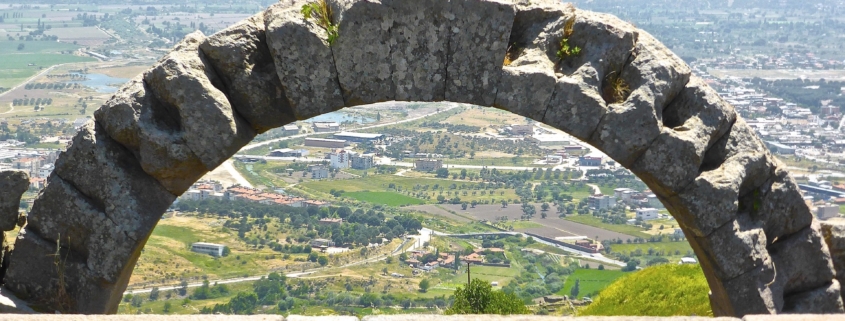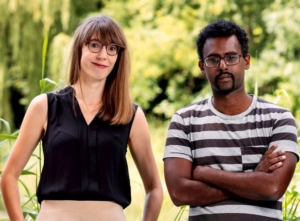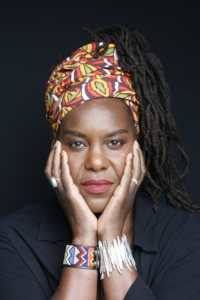ARCHON DAY 2021 – 29 October
Archon Day 2021
Date: 29 October 2021
Location: Allard Pierson Museum, Amsterdam (a valid QR-code will be requested at the door!)
Credits: 1 or 2 EC
Every year Archon organizes the Archon Day. During this day, we want to bring students, researchers, and professional archaeologists from the commercial sector together to talk about current topics in archaeology. This year the Archon Day will take place on 29 October 2021 and the central topic will be: ‘Decolonizing Archaeology’. We do our best to organise the ARCHON Day on location, keeping into consideration the corona-guidelines from the Dutch Government.
Preliminary Program:
10:00 – 10:30 Welcome with coffee & tea
10:30 – 10:45 Welcome by Philip Verhagen
10:45 – 11:45 Keynote lecture by Dr. Marike van Aerde and Samatar Ahmed Botan
11:45 – 12:30 Poster session
12:30 – 13:30 Lunch break & voting for posters
13:30 – 14:00 Poster prize & open science award announcement
14:00 – 16:00 Interactive workshop by Aminata Cairo on inclusive research
16:00 – 16:15 Coffee & tea break
16:15 – 17:00 Panel discussion and closing of the day
Keynote:
Until the late 20th century, the history and archaeology of ancient African societies, such as the kingdom of Aksum in the Horn of Africa (100 BCE-800 CE), have remained side-lined and often deliberately neglected in Western scholarship. These practices were closely linked to the political goals of the European colonial presence across the African continent.
By combining new scientific research and raising a widespread awareness of decolonizing archaeological practices and historical narratives, can we gain more substantial and factual understanding of actual ancient African histories, while also making significant changes in post-colonial research approaches, prevailing societal biases and incomplete historical narratives.
In this keynote, we present our recent work on Aksumite archaeology and the integral role that East African societies played in trade connections that spanned from the Indian Subcontinent to the Mediterranean region in Antiquity. In doing so, we focus on the lasting impact of European colonial-era scholarship, still evident in the field today. We also talk frankly about the challenges of pursuing post-colonial international collaborations by comparing the experiences, including our own, of scholars from different backgrounds and nationalities, ranging from the Netherlands to the Horn of Africa. In this way, on the one hand we offer new scientific findings concerning ancient African archaeology, and on the other hand, we open the floor to a wider discussion about decolonizing archaeological practices, why this matters to our societies today, and the many challenges that this pursuit entails.
She specializes in the archaeology of trade routes between the Indian Subcontinent and East Africa up to the mid-1st millennium CE. She works with an international team as part of her research project Routes of Exchange, Roots of Connectivity, focused on multiregional sites and datasets across the Indian Ocean region. Her research has a strong interdisciplinary component, including ceramics studies, chemical analysis, satellite and LiDAR, and database analyses. Her publications include studies of Indian Ocean trade networks, ancient Egyptian, Aksumite and Indian ports, and the documentation and preservation of rock art from the Karakorum Himalaya mountains, where she coordinates ongoing fieldwork. Marike actively pursues Open Access and Heritage initiatives and maintains the Archaeology Honours track at Leiden University, focused on archaeological science and current issues, including global networks, sustainability, and multiculturalism. She frequently works together with the Antiquities Museum in Leiden (RMO) on exhibitions and public outreach programs, and collaborates with multiple international universities and institutes in India, Sri Lanka, Pakistan and Egypt.
Samatar Ahmed Botan is a PhD candidate at the Faculty of Archaeology, Leiden University. He previously completed his Bachelor’s and Master’s degrees in Leiden, as well as a second Research Master’s degree at the Sultan Qaboos University in Muscat, Oman. Samatar is a ceramics specialist, with multiple years of fieldwork experience including campaigns in Syria, Portugal, Kurdistan, Oman and the United Arab Emirates, and he has co-authored several academic publications and excavation reports from sites in Oman. For his doctoral research, Sam works towards a detailed and nuanced understanding of the maritime trade routes that connected the Horn of Africa and the Indian Subcontinent in the first half of the first millennium CE, by focusing on a statistical and interpretative analyses of ceramics from the Aksumite empire in the Horn of Africa (80 BCE-800 CE). Samatar continues to be involved in projects in the Persian Gulf as a ceramics specialist, such as the Hili 14 project and the Understanding Prehistoric Settlement Dynamics at Shimal project.
Workshop:
Interactive workshop on Inclusive Research by Aminata Cairo.
Panel discussion:
Sean Desjardins, RUG (moderator)
James Symonds, UvA
Taariq Ali Sheik, VU
Joseph Sony Jean, LU/KITLV
Maia Casna, LU
Poster session:
Also this year we invite students to present their research through a poster presentation! During the ARCHON Day the audience will vote for the best poster presentation. The prize will be a personal research subsidy for publication costs/open access costs/translation costs up to max. 400 euro’s.
Poster guidelines:
- The maximum poster size is A0 format, which corresponds to 84 cm (width) x 118.8 cm (length). Your poster can have a smaller size, but keep an eye on the maximum length and width.
- Use the portrait format.
- Be creative! 🙂
Congress review assignment:
This year we ask students to write a ‘congress review’ about the ARCHON Day 2021 for KLEOS, Amsterdam Bulletin of Ancient Studies and Archaeology. A congress review is ca. 750 – 1500 words and is not peer-reviewed. The review should assess the congress’s strengths and weaknesses and locate it within the current field of scholarship. The review should not simply be a listing of contents, but discuss and evaluate it critically, though the review’s overall organization and emphasis are up to the individual reviewer.
Submit your congress review on 29 November latest, to bulletin.kleos@gmail.com and secretary@archonline.nl. Please also state if you want your review to be considered for publication or not. KLEOS will decide on the best review, which will be published in KLEOS issue 5 (launched in April/May 2022).
For examples of congress reviews that were published in KLEOS, please see the following links:
Issue 3: https://www.academia.edu/43175479/OIKOS_Nunspeet_Seminar_Methods_and_Techniques_November_8_9_2019_
Credits:
1 EC for attending and handing in a review (see below)
1 EC for giving a poster presentation
2 EC for attending, handing in a review and giving a poster presentation
QR-code:
The ARCHON Day will be held in the Allard Pierson Museum in Amsterdam. Since this is a cultural institution, they request a valid QR-code in the corona check app. Please keep this in mind, and make sure to bring a valid code!
Registration: Closed.




